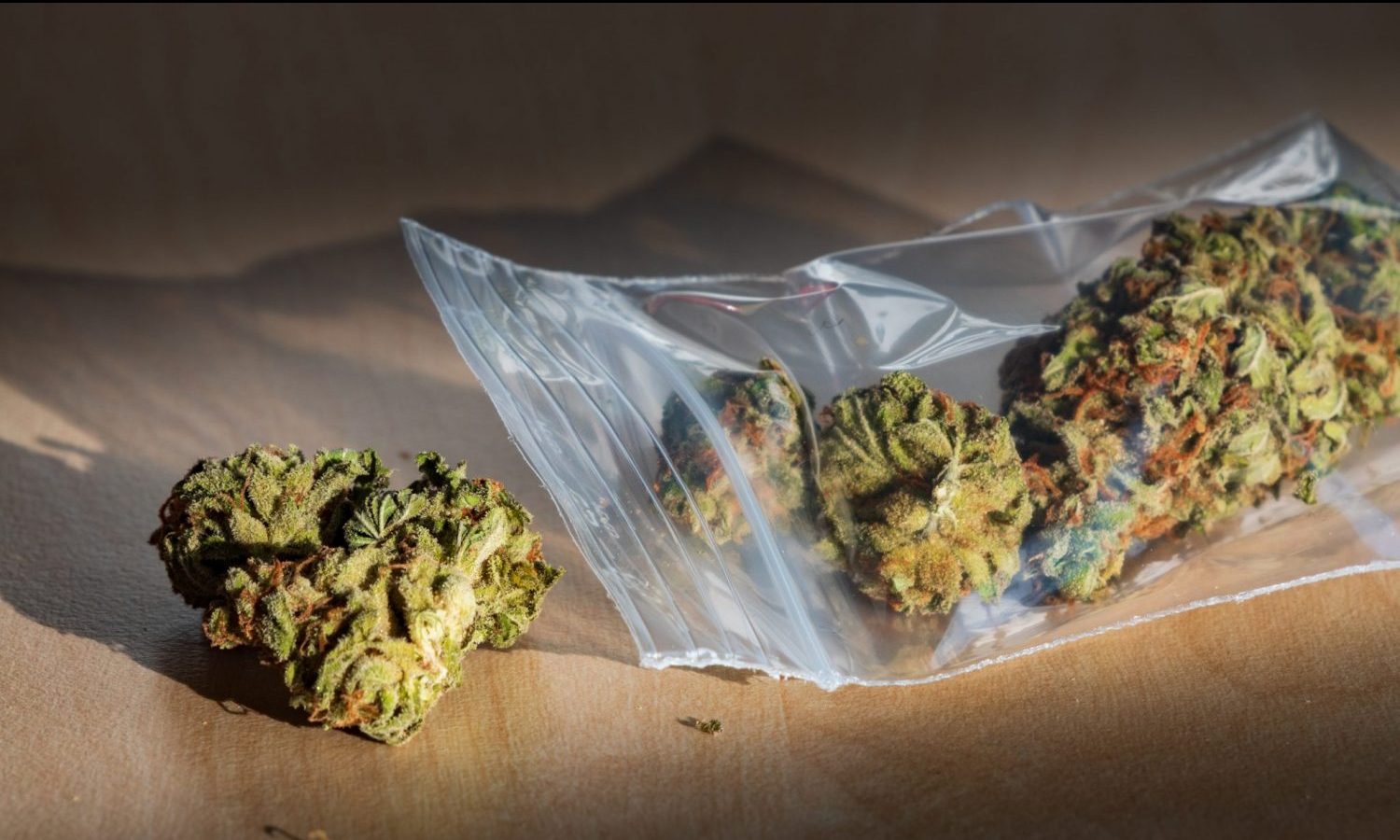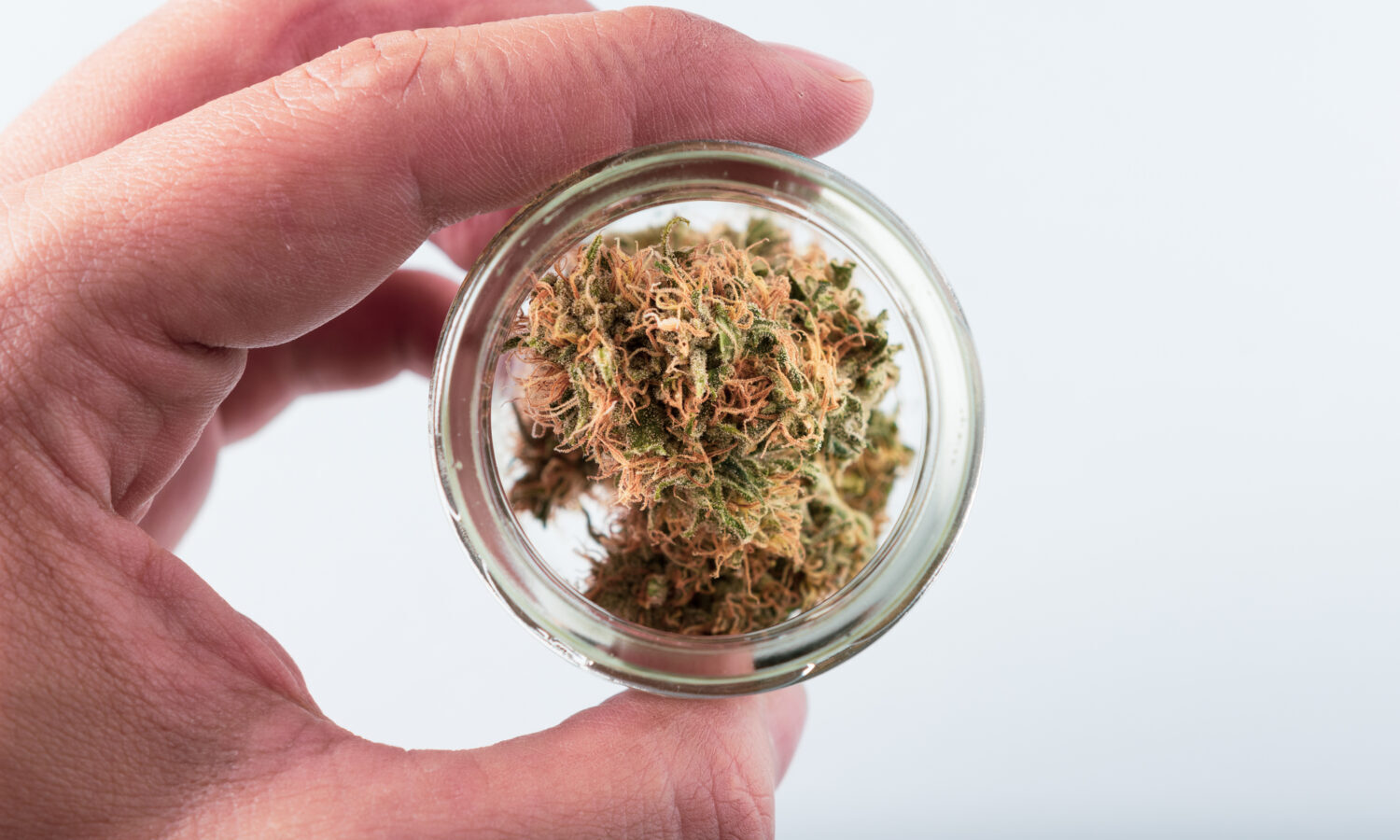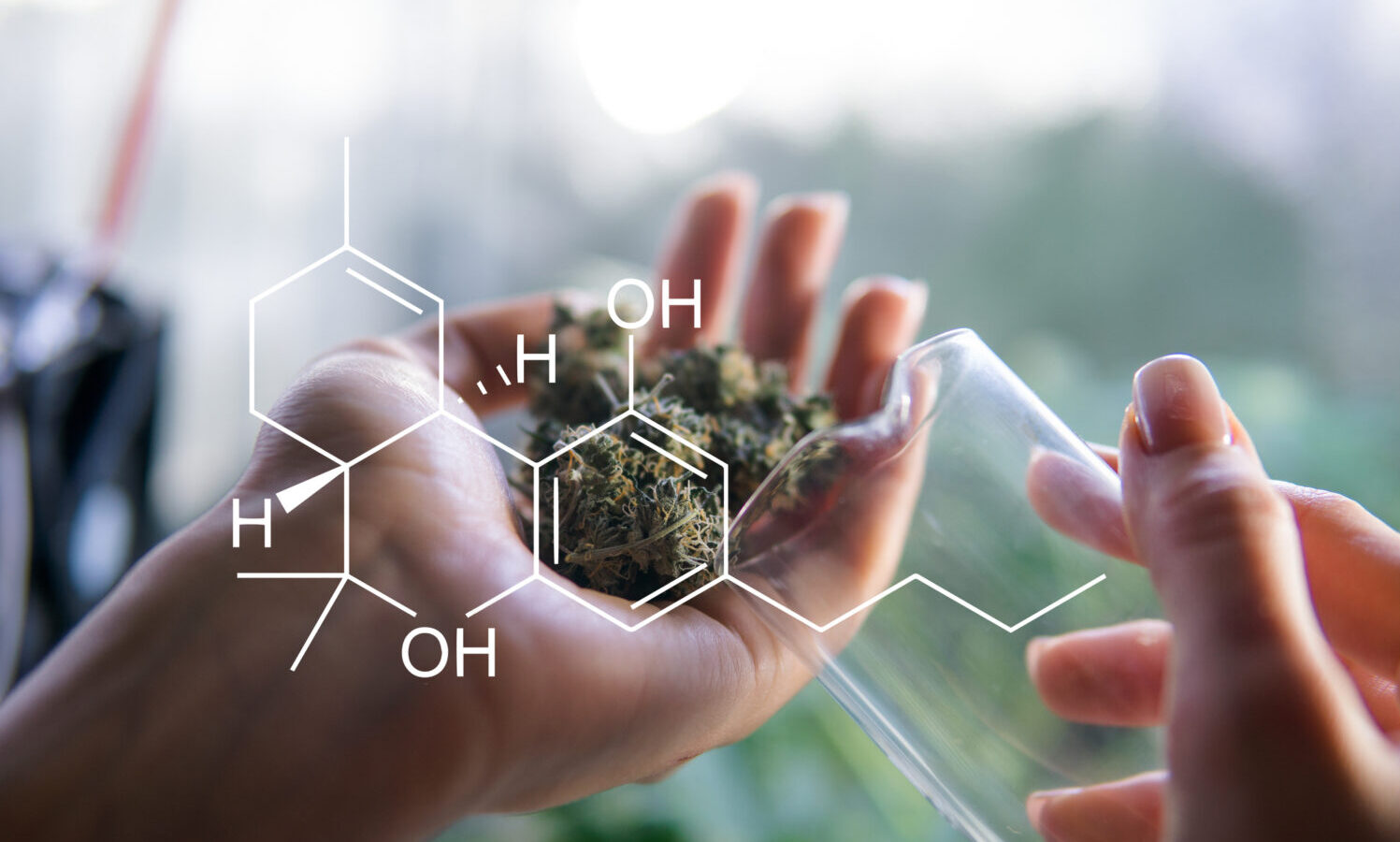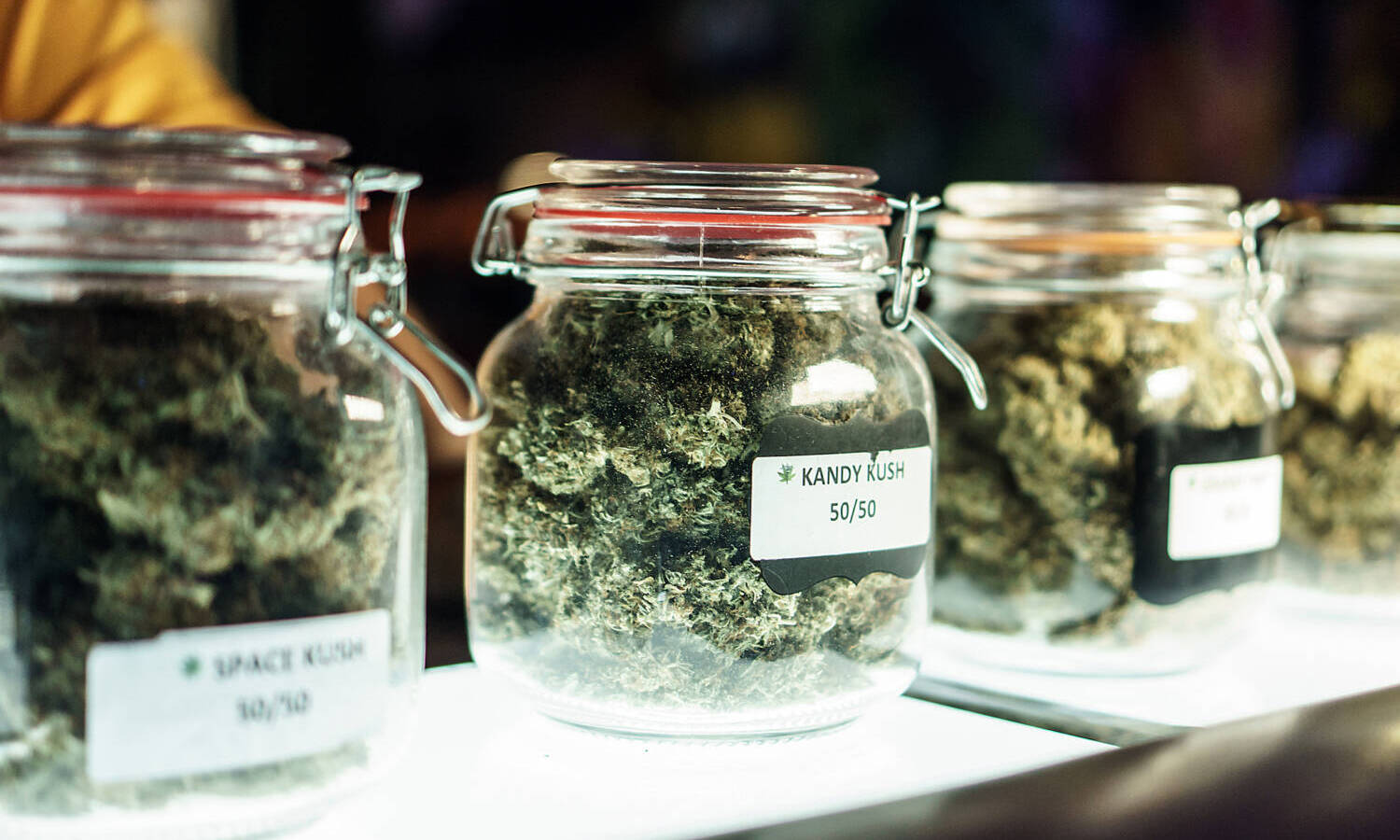Business
Understanding THC And TAC On Cannabis Labels

When you’re shopping for a cannabis product, you should definitely take the percentage of TAC into account in addition to the THC in order to make an informed decision. Here’s why.
Have you ever felt overwhelmed by all the information on cannabis labels like THC vs. TAC? After all, there are a lot of acronyms, percentages, and ingestion methods to learn about, and finding the right product may seem tricky at first. The good news is that with a little Canna 101 education, you’ll know exactly what your product label means.
While THC may be the most well-known cannabinoid next to CBD, the TAC number may be the most important figure on a cannabis label. Exactly what does TAC stand for, and why is it relevant? And, does TAC get you higher?
What is TAC?
TAC stands for Total Active Cannabinoids, which refers to the concentration of active cannabinoids present when the cannabis was tested in a lab. In contrast to pharmaceuticals, which typically consist of only one active compound, cannabis consists of a variety of active molecules.
According to estimates, cannabis (hemp and marijuana) contains over 400 compounds, with over 100 of them being cannabinoids. Generally, they can be categorized as follows:
- Cannabinoids
- Terpenoids
- Flavonoids
- Alkaloids
- Glycoproteins
Cannabis products are measured by their TAC, which measures the concentration of total active cannabinoids. Some key cannabinoids to consider include:

Tetrahydrocannabinol (THC)
Tetrahydrocannabinol is commonly referred to as THC, which is the main constituent of marijuana. Scientifically, it is called delta-9-tetrahydrocannabinol or delta-9-THC in its active state. In addition, this produces the euphoria or “high” associated with marijuana consumption. It is generally believed that a high produced from high concentrations of THC will be more intense than one with low concentrations of the ingredient.
Cannabidiol (CBD)
In terms of popularity and demand, CBD is perhaps the best-known and most in-demand cannabinoid, in addition to THC. CBD has a range of potential health benefits including relieving stress and inflammation. The TAC includes any CBD in your product. Most importantly, CBD is non-intoxicating, in contrast to THC.
Cannabinol (CBN)
CBN is commonly thought of as the sleep cannabinoid. There is a wide range of therapeutic effects associated with non-intoxicating CBN. According to early research, cannabinol may reduce pain and improve sleep.
Cannabigerol (CBG)
As a non-intoxicating compound, CBG may reduce the psychoactive effects of THC, similarly to CBD. By doing so, cannabis users can enjoy the benefits of THC without being impaired by intense highs.
While this effect may be mediated by the endocannabinoid system, this effect could also be due to CBG’s effects on the alpha-2 adrenergic receptors, which dampens sympathetic nervous system activity.
Cannabichromene (CBC)
While this compound was first identified 50 years ago, its benefits remain unclear. Nevertheless, it is known that similarly to THC and CBD, CBC also derives from cannabigerolic acid (CBGA). However, not much is known about how the less common cannabinoids affect human biology.
TAC is often mistakenly referred to as Total Aerobic Count by novices in the industry. It differs from Total Active Cannabinoids in that it refers to a different aspect of the plant’s composition. Using the total aerobic count, you can measure how many microbial cells are present in the cannabis sample.

THC vs TAC: Why do they differ?
As the name implies, TAC specifies the chemical composition of any hemp or cannabis plant by providing a list of its active cannabinoids. Therefore, TAC represents the product’s total cannabinoid levels. In contrast to THC, which is just one compound, TAC takes into account the entire spectrum of active cannabinoids contained within the product.
How are THC and TAC related?
There is a significant interaction between THC and TAC components. For example, CBD can potentially decrease anxiety from THC, altering the overall psychoactive experience.
Also, it is worth noting that certain TAC cannabinoids, for example, CBGA, contribute to the production of THC. CBGA, a form of CBG that is acidic, breaks down into CBG and then breaks down further into other cannabinoids, such as THC.
How does TAC influence the entourage effect?
In theory, the entourage effect describes the synergistic interaction of cannabinoids, terpenes, and flavonoids in cannabis. According to the theory, all the cannabis plant’s components, including phytocannabinoids and terpenes, enhance each other’s effects.
The TAC plays a major role in the entourage effect. However, along with cannabinoids, there are other compounds of importance, including fatty acids, terpenes, and flavonoids. And although the majority of the other compounds are not well understood, the entourage effect relies on all of them.
Cannabis strains are characterized by their unique flavors due to terpenes. Cannabis crops are not the only crops that produce terpenes, as every plant, fruit, and flower produces them. Some common terpenes include limonene, pinene, linalool, and eucalyptol. Moreover, terpenes can exert psychoactive effects, which is why some terpenes are sedating.
Flavonoids, however, provide plant pigments, and are particularly noteworthy for their antioxidant properties. Aside from this, the mechanism by which they contribute to the entourage effect must still be explored.

THC vs. TAC: key takeaways
So, what’s the verdict? Is THC better than TAC? As we mentioned earlier, that’s not really the point of this comparison. The purpose of comparing TAC vs THC is not to identify which is more beneficial or “better” in terms of purity or potency. Instead, it means that when you’re looking for a cannabinoid product, whether it be for medicinal or recreational use, you should definitely take the percentage of TAC into account in addition to the THC in order to make an informed decision.
The TAC percentage provides a more detailed picture of the entire cannabis product. However, if strength is your main concern, you may want to look for a product that has a higher percentage of THC. Of course, it’s important to remember that everyone reacts differently to cannabinoids, so always start with a low dose and increase as needed.
Find top-rated products for your goals
Jointly is a new app that makes it easy to discover the best cannabis and CBD products for your specific goals.
If you’re ready to discover your perfect cannabis experience, download the Jointly app today on the App Store or the Google Play Store.
Are you curious about Jointly?
Whether you’re looking to improve your sleep, relieve daily stress, or relieve aches and pains, Jointly can match you with a cannabis or CBD product that can help. Jointly’s algorithm helps you discover top-rated products and brands that match your preferences, goals, and unique personality.
Source: https://thefreshtoast.com/how-to/understanding-thc-and-tac-on-cannabis-labels/
Business
New Mexico cannabis operator fined, loses license for alleged BioTrack fraud

New Mexico regulators fined a cannabis operator nearly $300,000 and revoked its license after the company allegedly created fake reports in the state’s traceability software.
The New Mexico Cannabis Control Division (CCD) accused marijuana manufacturer and retailer Golden Roots of 11 violations, according to Albuquerque Business First.
Golden Roots operates the The Cannabis Revolution Dispensary.
The majority of the violations are related to the Albuquerque company’s improper use of BioTrack, which has been New Mexico’s track-and-trace vendor since 2015.
The CCD alleges Golden Roots reported marijuana production only two months after it had received its vertically integrated license, according to Albuquerque Business First.
Because cannabis takes longer than two months to be cultivated, the CCD was suspicious of the report.
After inspecting the company’s premises, the CCD alleged Golden Roots reported cultivation, transportation and sales in BioTrack but wasn’t able to provide officers who inspected the site evidence that the operator was cultivating cannabis.
In April, the CCD revoked Golden Roots’ license and issued a $10,000 fine, according to the news outlet.
The company requested a hearing, which the regulator scheduled for Sept. 1.
At the hearing, the CCD testified that the company’s dried-cannabis weights in BioTrack were suspicious because they didn’t seem to accurately reflect how much weight marijuana loses as it dries.
Company employees also poorly accounted for why they were making adjustments in the system of up to 24 pounds of cannabis, making comments such as “bad” or “mistake” in the software, Albuquerque Business First reported.
Golden Roots was fined $298,972.05 – the amount regulators allege the company made selling products that weren’t properly accounted for in BioTrack.
The CCD has been cracking down on cannabis operators accused of selling products procured from out-of-state or not grown legally:
- Regulators alleged in August that Albuquerque dispensary Sawmill Sweet Leaf sold out-of-state products and didn’t have a license for extraction.
- Paradise Exotics Distro lost its license in July after regulators alleged the company sold products made in California.
Golden Roots was the first alleged rulebreaker in New Mexico to be asked to pay a large fine.
Source: https://mjbizdaily.com/new-mexico-cannabis-operator-fined-loses-license-for-alleged-biotrack-fraud/
Business
Marijuana companies suing US attorney general in federal prohibition challenge

Four marijuana companies, including a multistate operator, have filed a lawsuit against U.S. Attorney General Merrick Garland in which they allege the federal MJ prohibition under the Controlled Substances Act is no longer constitutional.
According to the complaint, filed Thursday in U.S. District Court in Massachusetts, retailer Canna Provisions, Treevit delivery service CEO Gyasi Sellers, cultivator Wiseacre Farm and MSO Verano Holdings Corp. are all harmed by “the federal government’s unconstitutional ban on cultivating, manufacturing, distributing, or possessing intrastate marijuana.”
Verano is headquartered in Chicago but has operations in Massachusetts; the other three operators are based in Massachusetts.
The lawsuit seeks a ruling that the “Controlled Substances Act is unconstitutional as applied to the intrastate cultivation, manufacture, possession, and distribution of marijuana pursuant to state law.”
The companies want the case to go before the U.S. Supreme Court.
They hired prominent law firm Boies Schiller Flexner to represent them.
The New York-based firm’s principal is David Boies, whose former clients include Microsoft, former presidential candidate Al Gore and Elizabeth Holmes’ disgraced startup Theranos.
Similar challenges to the federal Controlled Substances Act (CSA) have failed.
One such challenge led to a landmark Supreme Court decision in 2005.
In Gonzalez vs. Raich, the highest court in the United States ruled in a 6-3 decision that the commerce clause of the U.S. Constitution gave Congress the power to outlaw marijuana federally, even though state laws allow the cultivation and sale of cannabis.
In the 18 years since that ruling, 23 states and the District of Columbia have legalized adult-use marijuana and the federal government has allowed a multibillion-dollar cannabis industry to thrive.
Since both Congress and the U.S. Department of Justice, currently headed by Garland, have declined to intervene in state-licensed marijuana markets, the key facts that led to the Supreme Court’s 2005 ruling “no longer apply,” Boies said in a statement Thursday.
“The Supreme Court has since made clear that the federal government lacks the authority to regulate purely intrastate commerce,” Boies said.
“Moreover, the facts on which those precedents are based are no longer true.”
Verano President Darren Weiss said in a statement the company is “prepared to bring this case all the way to the Supreme Court in order to align federal law with how Congress has acted for years.”
While the Biden administration’s push to reschedule marijuana would help solve marijuana operators’ federal tax woes, neither rescheduling nor modest Congressional reforms such as the SAFER Banking Act “solve the fundamental issue,” Weiss added.
“The application of the CSA to lawful state-run cannabis business is an unconstitutional overreach on state sovereignty that has led to decades of harm, failed businesses, lost jobs, and unsafe working conditions.”
Business
Alabama to make another attempt Dec. 1 to award medical cannabis licenses

Alabama regulators are targeting Dec. 1 to award the first batch of medical cannabis business licenses after the agency’s first two attempts were scrapped because of scoring errors and litigation.
The first licenses will be awarded to individual cultivators, delivery providers, processors, dispensaries and state testing labs, according to the Alabama Medical Cannabis Commission (AMCC).
Then, on Dec. 12, the AMCC will award licenses for vertically integrated operations, a designation set primarily for multistate operators.
Licenses are expected to be handed out 28 days after they have been awarded, so MMJ production could begin in early January, according to the Alabama Daily News.
That means MMJ products could be available for patients around early March, an AMCC spokesperson told the media outlet.
Regulators initially awarded 21 business licenses in June, only to void them after applicants alleged inconsistencies with how the applications were scored.
Then, in August, the state awarded 24 different licenses – 19 went to June recipients – only to reverse themselves again and scratch those licenses after spurned applicants filed lawsuits.
A state judge dismissed a lawsuit filed by Chicago-based MSO Verano Holdings Corp., but another lawsuit is pending.
Source: https://mjbizdaily.com/alabama-plans-to-award-medical-cannabis-licenses-dec-1/
-

 Business2 years ago
Business2 years agoPot Odor Does Not Justify Probable Cause for Vehicle Searches, Minnesota Court Affirms
-

 Business2 years ago
Business2 years agoNew Mexico cannabis operator fined, loses license for alleged BioTrack fraud
-

 Business2 years ago
Business2 years agoAlabama to make another attempt Dec. 1 to award medical cannabis licenses
-

 Business2 years ago
Business2 years agoWashington State Pays Out $9.4 Million in Refunds Relating to Drug Convictions
-

 Business2 years ago
Business2 years agoMarijuana companies suing US attorney general in federal prohibition challenge
-

 Business2 years ago
Business2 years agoLegal Marijuana Handed A Nothing Burger From NY State
-

 Business2 years ago
Business2 years agoCan Cannabis Help Seasonal Depression
-

 Blogs2 years ago
Blogs2 years agoCannabis Art Is Flourishing On Etsy











